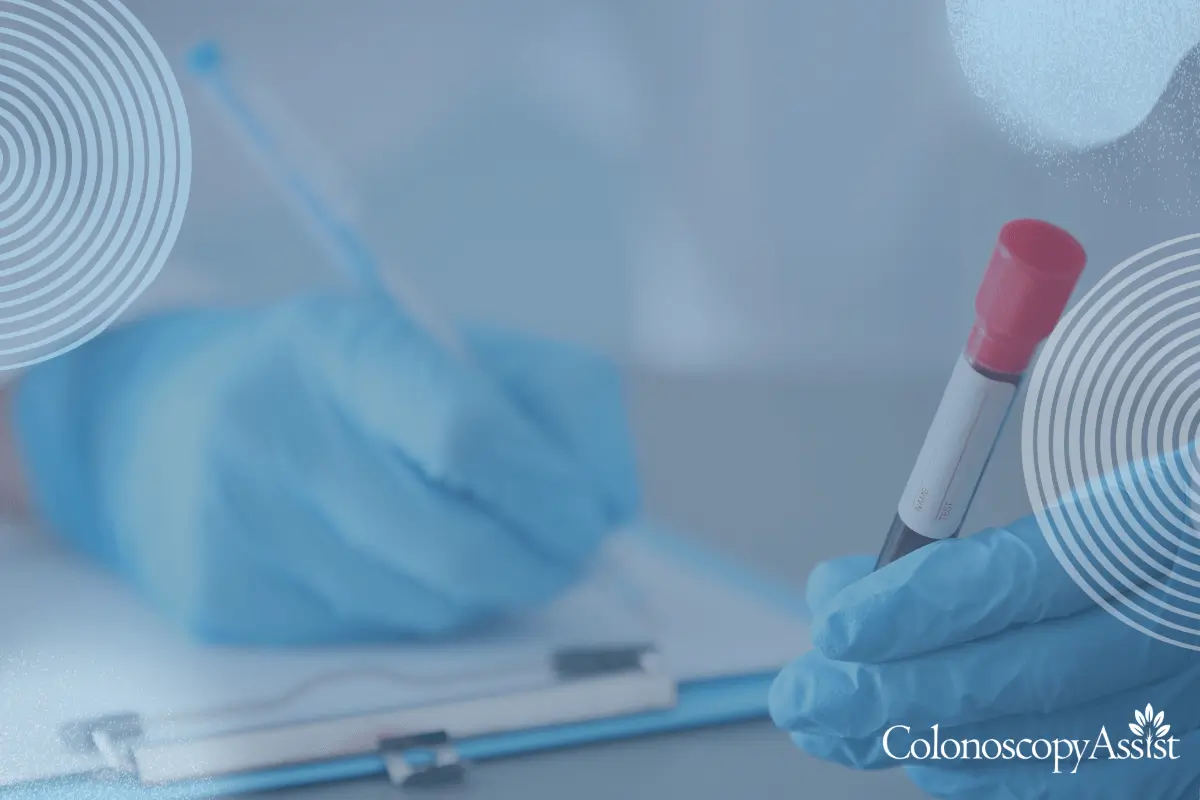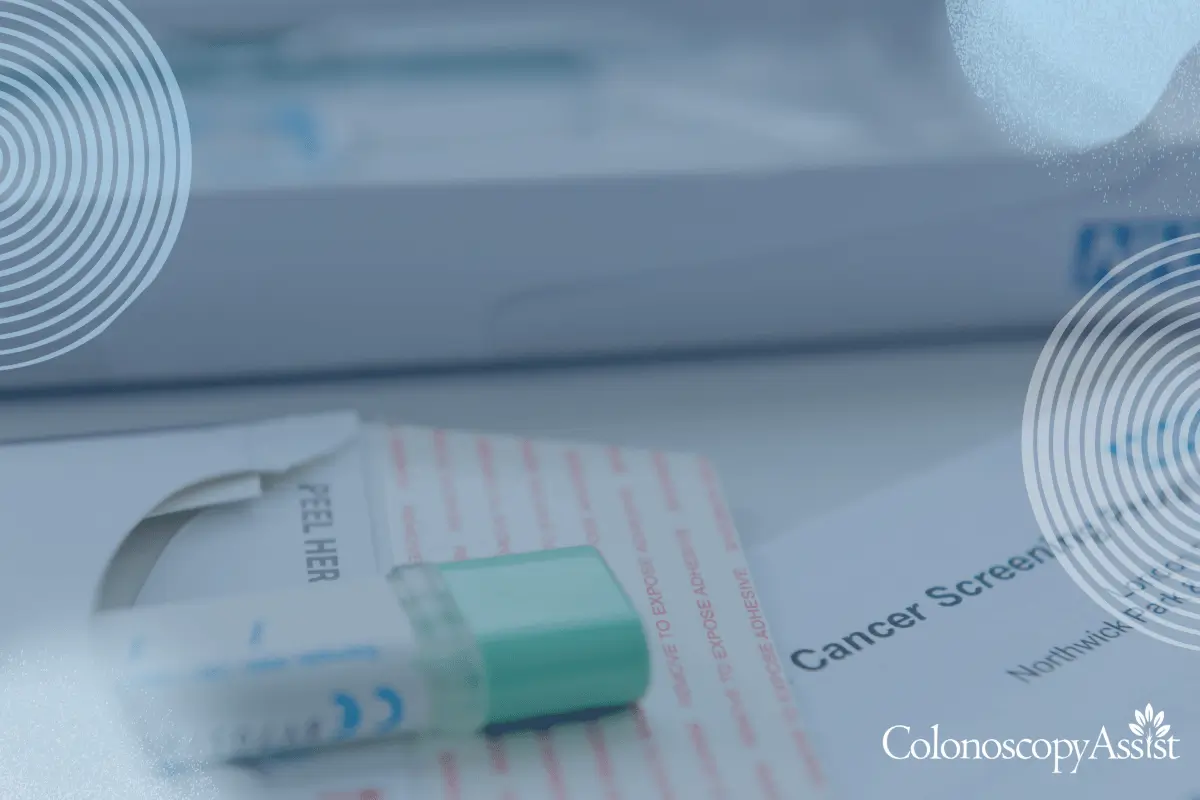Table of Contents
ToggleSchedule Your Procedure Today
- All-Inclusive Service
- Board-Certified Physicians
- Transparent Pricing
Colorectal cancer (CRC) screening has come a long way. While colonoscopies remain the gold standard, newer, less invasive tests are making it easier for people to get screened. The goal? Increase participation and catch cancer earlier, especially for those who avoid traditional screening.
This year, exciting advancements—including blood-based tests, improved stool screenings, AI-powered detection, and cutting-edge imaging—are transforming the way we detect CRC.
Let’s take a closer look at these innovations and how they compare to colonoscopies.
Blood-Based Screening Tests: A New Non-Invasive Option

One of the most significant breakthroughs in CRC screening is the Shield blood test, which received FDA approval in July 2024. This test represents a major step forward in non-invasive screening methods.
Key Features of the Shield Blood Test:
- 83% sensitivity for detecting colorectal cancer
- 90% specificity, meaning fewer false positives
- Recommended every three years for adults starting at age 45
This test makes screening more convenient, but there’s a catch: it’s not great at detecting precancerous polyps, only 13% sensitivity for advanced lesions. That means while it’s good at finding cancer, it’s not as effective at preventing it.
Who is this test best for? People who refuse colonoscopies but still want some level of screening.
Next-Generation Stool-Based Tests: More Accuracy, Better Detection

Stool-based tests have been around for years, but 2025 brings two major advancements that improve detection rates:
Cologuard FIT-DNA Test
- 94% detection rate for colorectal cancer
- 43% detection rate for advanced precancerous polyps
- Approximately 10% false-positive rate
This updated Cologuard test improves early detection, making it a strong alternative for people who want to screen at home.
ColoSense: The First Multitarget Stool RNA (mt-sRNA) Test
Approved in 2024, ColoSense blends traditional stool testing with RNA biomarkers, increasing accuracy without making the test more difficult to use. It offers a balance between sensitivity and convenience, making at-home testing even more reliable.
Who should consider these tests? People who want a non-invasive option with higher accuracy than blood-based tests.
Advanced Imaging Technologies: Sharper Visualization for Colonoscopies

At UConn Health, researchers have developed a next-gen endoscopy system that improves visualization inside the colon. This means:
UConn Health’s Next-Gen Endoscopy System
- Provides sharper imaging for better identification of abnormalities
- Enhances visibility of subtle tissue changes in the colon
- Helps detect smaller and flatter polyps that might be missed with older technology
Artificial Intelligence (AI) in CRC Screening: Aiding Detection Accuracy

AI-powered computer-aided detection (CAD) tools are becoming more sophisticated, assisting doctors in identifying potential abnormalities during colonoscopies.
How AI is Enhancing CRC Detection
- Real-time polyp detection to minimize human oversight
- Improved accuracy in spotting flat or hard-to-detect polyps
- Faster and more precise colonoscopy interpretations
While early AI-based colonoscopy assistance showed limited benefits, newer models are demonstrating better accuracy in detecting advanced adenomas. As AI continues to evolve, it could become a game-changer in CRC screening.
How Do These Advancements Compare to Colonoscopies?
Even with these advancements, colonoscopy remains the most effective tool for both detection and prevention. Here’s how the latest tests stack up:
Screening Method | Detection of Precancerous Lesions | Prevention Capability | False Positives |
Colonoscopy | 95% | Yes | Low |
Shield Blood Test | 13% | No | 10% |
Next-Gen Cologuard | 43% | No | Higher |
AI Colonoscopy | Increases detection of small polyps | Yes | N/A |
What These Advancements Mean for You
The good news? You now have more choices than ever for CRC screening:
- More people screened: Blood and stool-based tests make screening easier and more accessible.
- Earlier detection: AI and biomarker advancements improve the chances of catching CRC before it spreads.
- Personalized options: Whether you prefer a traditional colonoscopy, at-home stool test, or non-invasive blood test, there’s an option that fits your needs.
Final Thoughts
Colorectal cancer screening is getting more advanced, more accurate, and more convenient. While colonoscopy is still the best option, newer tests provide viable alternatives for those who want an easier way to get screened.
The most important thing? Getting screened, no matter which test you choose. The sooner cancer is detected, the easier it is to treat.
EXCELLENT rating
Based on 2125 reviewsTrustindex verifies that the original source of the review is Google. I was referred to ColonoscopyAssist through my healthcare sharing ministry. They communicated with me every step of the way and were a lower-cost solution to getting a colonoscopy since my preventative screenings aren't covered. I got mine done through a very reputable endoscopy group and they were wonderful.Trustindex verifies that the original source of the review is Google. The entire process was seamless and the staff was friendly and professional. Overall. I had a wonderful experience at your facility.Trustindex verifies that the original source of the review is Google. After the initial, sign up with ColonscopyAssist, it took about 2-3 weeks to get a call from doctors office and appt was 2 weeks later. Everything went smoothly, the doctor was not personable but was professional. Glad it is done. Now my husband has peace of mind.Trustindex verifies that the original source of the review is Google. Simple and easy with great savings.Trustindex verifies that the original source of the review is Google. ColonoscopyAssist was very helpful, responsive, and made the process happen smoothly, not to mention made the procedure much more affordable.Trustindex verifies that the original source of the review is Google. This was as easy as it could have been! Competent and Professional are words that come to mind. This is a great program. From beginning to end it proceeded without a glitch!Trustindex verifies that the original source of the review is Google. Everything worked well before, during and after procedure. Got lots of information. Only ask to upgrade the guide when people are taking tables and not a liquid prep.Trustindex verifies that the original source of the review is Google. very professional and friendly service, everything was organized and I was advised on all the steps. they made this process simple.


















